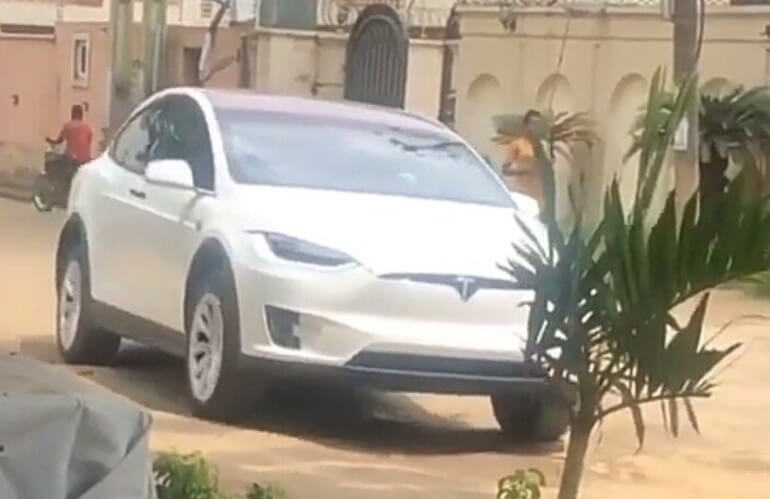Over the past ten years, the popularity of electric cars has skyrocketed, with major automakers like Tesla, Nissan, and BMW each creating their own iterations of green automobiles. While some nations were early adopters of the trend, others lagged behind in catching on, the rise of electric automobiles has not been uniformly felt all over the world.
Table of Contents
Nigeria, the most populous nation in Africa, is one of the nations that has taken longer to accept electric cars as an effective form of transportation. In recent years, the Nigerian government has taken steps to encourage the use of electric vehicles as part of its efforts to lower carbon emissions.
Although there have been efforts, there are still not many electric vehicles on Nigerian roads. Electric cars are becoming increasingly popular around the world. Nigeria is one of the countries that has shown a significant interest in this new technology. In this article, we will explore the current status of electric cars in Nigeria and the future outlook.
Electric Cars Current Status in Nigeria
Nigerian roads currently only have a small number of electric vehicles. This is partly because there isn’t much infrastructure to support electric vehicles, and their prices are still very high.
To change this, there are some projects. The Nigerian Electric Mobility Policy, which was introduced by the Nigerian government in 2018, is one such project. The goal of the policy is to support electric car production and use in Nigeria. Additionally, in an effort to encourage more people to purchase electric vehicles, the government has decreased the import tax on them.
The conversion of conventional combustion engines to electric engines is a speciality of local startups that have arisen. By converting old gasoline-powered automobiles, trucks, and buses, for instance, firms like EV Fit Nigeria are attempting to offer Nigerians access to affordable electric vehicles.
The Lagos-based electric vehicle manufacturer Nigus Enfinity, which hopes to develop up to 10,000 electric vehicles in Nigeria over the next five years, is another venture involving electric vehicles. The company will be supplying electric automobiles in collaboration with the Chinese carmaker Build Your Dreams (BYD).
Additionally, “Keke-Electric” bikes, which are electric bicycles, are becoming quite popular in several Nigerian cities. Electric motors, which use less energy and are more environmentally friendly than gasoline-powered Keke (tricycle) taxis, are used to power Keke-Electric vehicles, which are a sustainable alternative. Some of these electric Keke cab drivers have reportedly seen increases in daily revenues of up to 40% while using less fuel or maintenance.
The cheap maintenance costs of electric vehicles as opposed to petrol vehicles are one of their advantages. Compared to gasoline-powered vehicles, electric vehicles have fewer moving parts, which makes them more resistant to damage. Since they don’t require routine oil changes or combustion engine maintenance, electric automobiles require less maintenance than gas-powered vehicles.
Electric Cars Future Outlook in Nigeria
The electric vehicle market in Nigeria is anticipated to expand rapidly during the coming years. In addition to the already mentioned Nigus Enfinity plan to locally create up to 10,000 electric vehicles in Nigeria over the following five years, there are a number of additional electric vehicle efforts that are gaining ground in the nation.
With its new electric vehicle policy, the government hopes to boost the use of electric vehicles while also luring foreign capital to the market. As a result of the programme, the nation is anticipated to become self-sufficient in the use of renewable energy sources through promoting local production of electric vehicles, charging stations, and batteries.
An infrastructure network for electric vehicle charging will emerge as electric vehicle production rises in Nigeria. There are currently not enough charging stations available in the nation, which is a major issue for owners of electric vehicles. However, as more electric vehicles are predicted to be on the road, there will be a greater need for charging stations, leading to the construction of more of them.
The environmental impact of electric automobiles in Nigeria is another related advantage. The huge carbon footprint that the nation’s exhaust emissions currently leave behind might be diminished with the adoption of electric vehicles. According to research by the International Energy Agency (IEA), more than 25% of the world’s energy-related carbon dioxide (CO2) emissions are attributable to the transportation sector.
Considering that they don’t produce exhaust gases, electric automobiles emit a lot less CO2 than gasoline-powered vehicles do. There is a need to lessen the carbon footprint due to Nigeria’s growing population and the expansion of the transportation industry, and the usage of electric vehicles provides a chance to accomplish so.
Conclusion
In Nigeria, the market for electric cars is only starting to take off. Although the uptake of electric vehicles has been somewhat gradual, startups converting conventional combustion engines to electric engines, local production initiatives, and the government’s new policy on electric vehicles should hasten the uptake of electric automobiles in Nigeria.
Electric cars may overtake gasoline-powered vehicles as Nigeria’s preferred method of transportation in the upcoming years with increased investments in infrastructure, charging stations, and battery technology, as well as the low cost of EV maintenance and growing petrol costs in the country.









